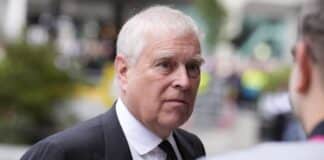Harvard University’s 2025 yearbook has drawn fierce criticism for omitting any reference to the October 7 Hamas terror attack that killed 1,200 Israelis and kidnapped 251 others, while instead featuring a full-page photo of the John Harvard statue draped in a Palestinian keffiyeh. The image is captioned “War breaks out in Gaza,” with no mention of Hamas or its role in the massacre. The omission has sparked outrage from Jewish groups, alumni, and national leaders who view it as a deliberate act of historical revisionism and a failure of moral responsibility.
In its month-by-month historical retrospective, the October entry in Harvard’s “Red Book” makes no mention of Hamas, terrorism, or the attack itself. The keffiyeh, widely associated with Palestinian nationalism and, in many contexts, with extremist factions, was placed on the statue during pro-Palestinian campus protests in the fall. Jewish student leaders at Harvard Chabad called the yearbook portrayal “Holocaust-like denial,” accusing the editors of erasing Jewish suffering for ideological reasons.
Alumni have spoken out forcefully. Alexander “Shabbos” Kestenbaum, a Jewish graduate, urged employers to ask job applicants from Harvard where they stood on the massacre. Legal advocacy organizations like The Lawfare Project described the yearbook’s framing as “moral failure” and “historical whitewashing.” Harvard’s decision not to label the attack as terrorism contrasts sharply with the global consensus that the October 7 incident was a premeditated, large-scale act of terrorism targeting civilians.
The political fallout is intensifying. President Trump revoked $3 billion in federal funding to Harvard, citing the university’s continued tolerance of anti-Semitism and institutional bias. The White House and State Department have also opened reviews of federal grants and visa sponsorships associated with the university, signaling broader implications for higher education institutions that misrepresent or ignore key historical events.





